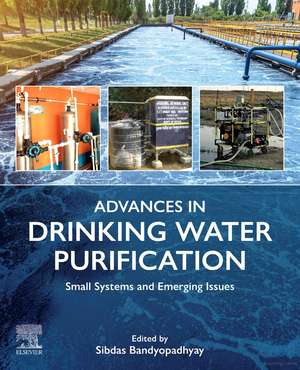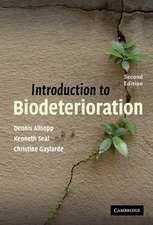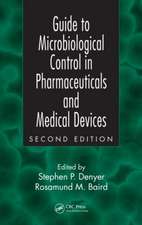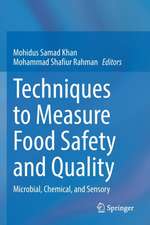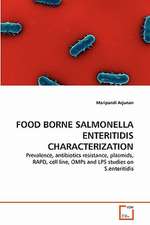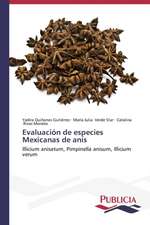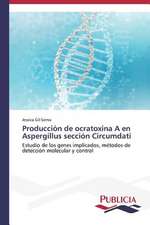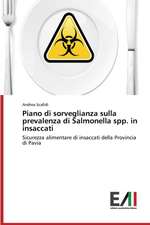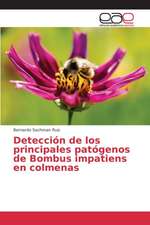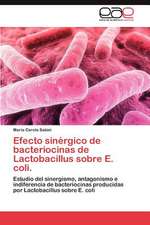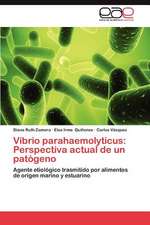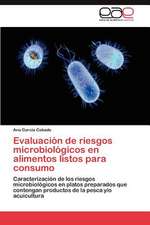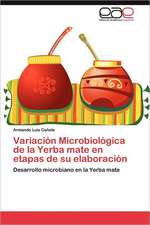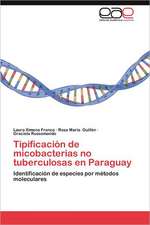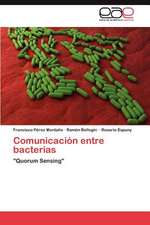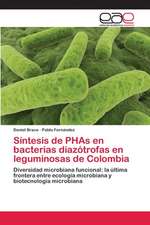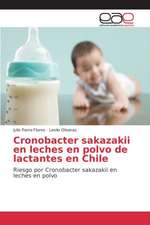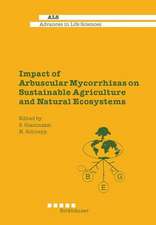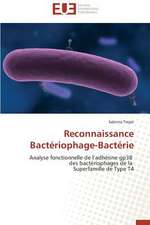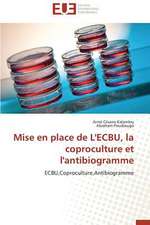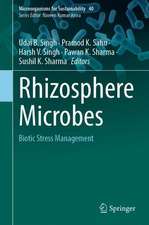Advances in Drinking Water Purification: Small Systems and Emerging Issues
Editat de Sibdas Bandyopadhyayen Limba Engleză Paperback – 17 ian 2024
In addition, it provides insights into the effect of nature of impurities and selection of treatment options on the global quality of drinking water, comprising its possible impacts on the efficiency of the techniques used and thus on the safety of drinking water. This information is indispensable in identifying the appropriate technology depending on the socioeconomic conditions to address the problem of decontamination in drinking water.
- Discusses point-of-use devices for the removal of organic and inorganic contaminants from drinking water
- Provides a multipronged approach to encourage, recognize, protect and commercialize available options for water purification
- Includes case studies for field testing/pilot trials
- Provides an in-depth analysis on the efficacy of small systems with an emphasis on the sustainability, socio-technical aspects and emerging issues
Preț: 1041.03 lei
Preț vechi: 1367.18 lei
-24% Nou
Puncte Express: 1562
Preț estimativ în valută:
199.20€ • 208.54$ • 164.83£
199.20€ • 208.54$ • 164.83£
Carte tipărită la comandă
Livrare economică 29 martie-12 aprilie
Preluare comenzi: 021 569.72.76
Specificații
ISBN-13: 9780323917339
ISBN-10: 032391733X
Pagini: 496
Dimensiuni: 191 x 235 mm
Greutate: 0.45 kg
Editura: ELSEVIER SCIENCE
ISBN-10: 032391733X
Pagini: 496
Dimensiuni: 191 x 235 mm
Greutate: 0.45 kg
Editura: ELSEVIER SCIENCE
Public țintă
Graduate students in Chemical Engineering, Environmental Science & Engineering, and Civil Engineering; Researchers in Chemical Engineering, Materials Science, Chemistry, Physics, Geochemistry, Hydrology, etc. working on water technology, water pollution control, treatment of toxic contaminants, and development of small systems; Professionals working on drinking water treatment and supply; Policy makers and planners for water supply in peri-urban and rural areasCuprins
Section 1: Introduction
1. Drinking water contamination – An update on the technological status
Section 2: Arsenic Remediation
2. Arsenic removal from drinking water using treated laterite based adsorbent
3. Arsenic Removal Technology using iron and manganese based natural adsorbents: An overview
4. Arsenic and Iron Removal by Zero-Valent Iron and Electrocoagulation
5. Simultaneous arsenic and iron removal by adsorbent assisted hybrid microfiltration technology for point-of-use application
6. Latest development in arsenic removal by membrane technology
Section 3: Treatment of priority chemical contaminants
7. Fluoride removal from drinking water by electrocoagulation process: Recent studies, modelling, and simulation through CFD approach
8. Ion Exchange Polymers: Versatile sorbents for water remediation
9. Hybrid Ion Exchange Processes: From Decontamination to Desalination
Section 4: Disinfection techniques
10. Metallic iron for decentralized safe drinking water supply: Self-reliance is possible
11. Point-of-Use Ceramic Water Filter from nano to macro: materials selection, manufacturing and field performance advances and research needs
12. Recent Advances on the Technologies for the Disinfection of Drinking Water
Section 5: Emerging Issues
13. Nanostructured materials for removal of geogenic contaminants from water
14. Separation of microbial and organic pollutants from water using low pressure tailor made membranes
15. Deep removal of toxic oxysalts with titanium xerogels
Section 6: Socio-technical and Sustainability Aspects
16. Socio-technical safe drinking water regime in Bangladesh: A post arsenic crisis analysis
17. Building Resilience: Mobile Emergency Water Treatment Systems
18. Advances in the development of adequate, affordable, and sustainable treatment alternatives to drinking water contamination by arsenic, heavy metals, and nitrates in Mexico.
1. Drinking water contamination – An update on the technological status
Section 2: Arsenic Remediation
2. Arsenic removal from drinking water using treated laterite based adsorbent
3. Arsenic Removal Technology using iron and manganese based natural adsorbents: An overview
4. Arsenic and Iron Removal by Zero-Valent Iron and Electrocoagulation
5. Simultaneous arsenic and iron removal by adsorbent assisted hybrid microfiltration technology for point-of-use application
6. Latest development in arsenic removal by membrane technology
Section 3: Treatment of priority chemical contaminants
7. Fluoride removal from drinking water by electrocoagulation process: Recent studies, modelling, and simulation through CFD approach
8. Ion Exchange Polymers: Versatile sorbents for water remediation
9. Hybrid Ion Exchange Processes: From Decontamination to Desalination
Section 4: Disinfection techniques
10. Metallic iron for decentralized safe drinking water supply: Self-reliance is possible
11. Point-of-Use Ceramic Water Filter from nano to macro: materials selection, manufacturing and field performance advances and research needs
12. Recent Advances on the Technologies for the Disinfection of Drinking Water
Section 5: Emerging Issues
13. Nanostructured materials for removal of geogenic contaminants from water
14. Separation of microbial and organic pollutants from water using low pressure tailor made membranes
15. Deep removal of toxic oxysalts with titanium xerogels
Section 6: Socio-technical and Sustainability Aspects
16. Socio-technical safe drinking water regime in Bangladesh: A post arsenic crisis analysis
17. Building Resilience: Mobile Emergency Water Treatment Systems
18. Advances in the development of adequate, affordable, and sustainable treatment alternatives to drinking water contamination by arsenic, heavy metals, and nitrates in Mexico.
